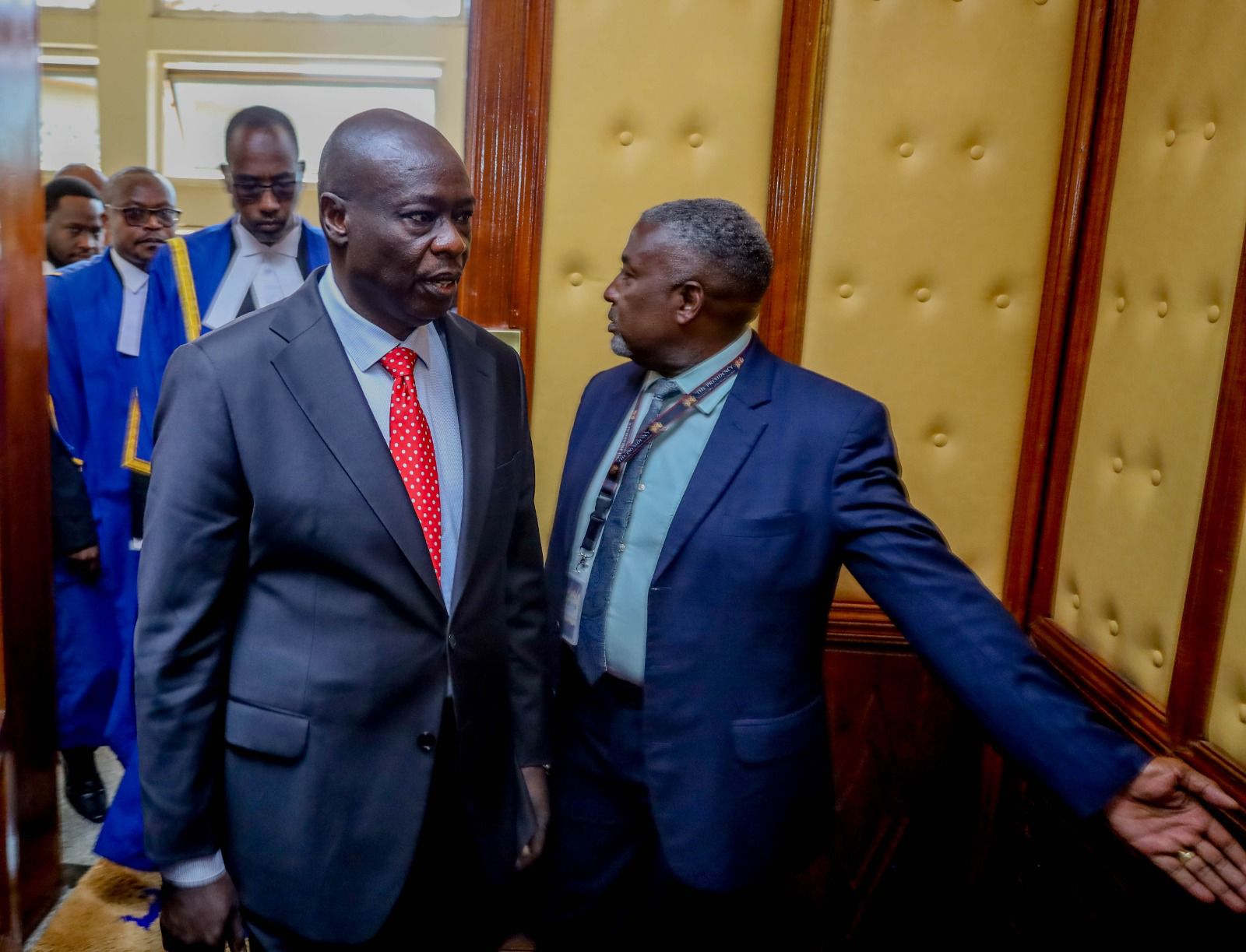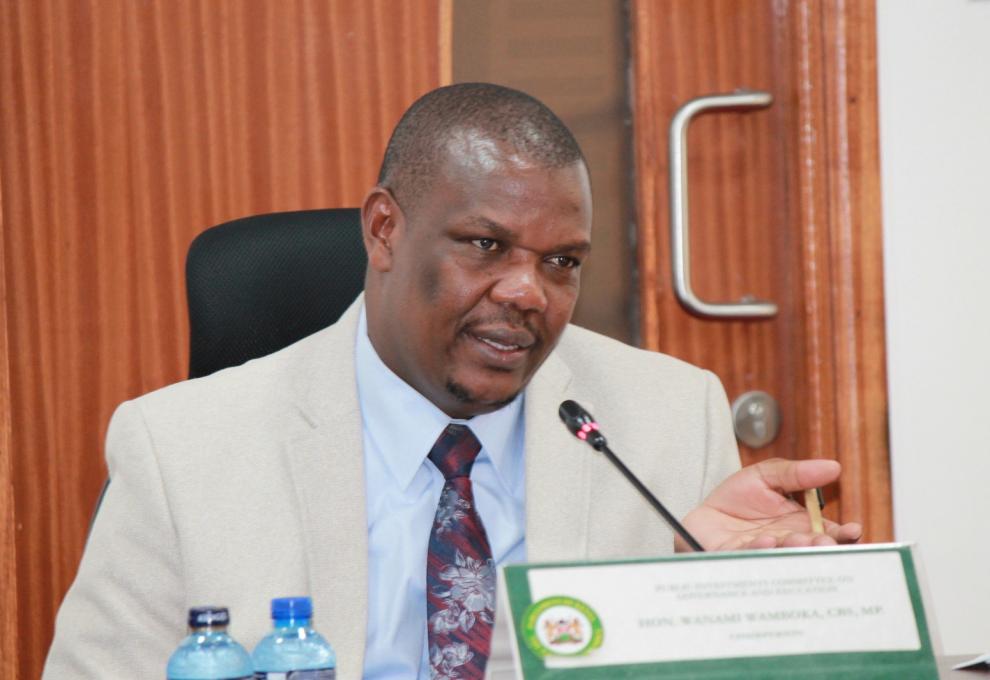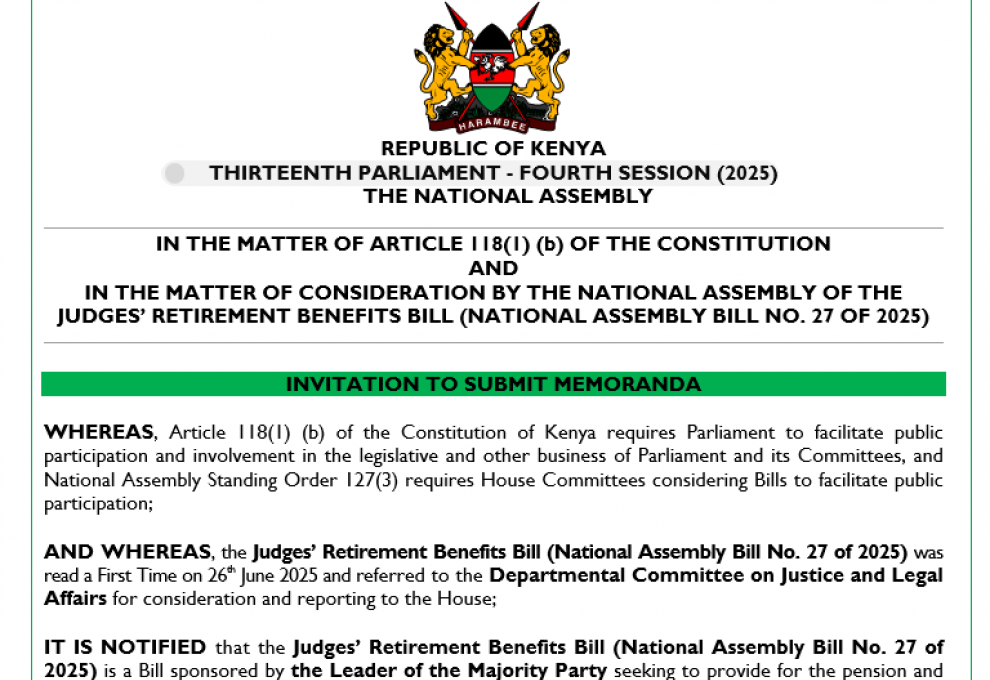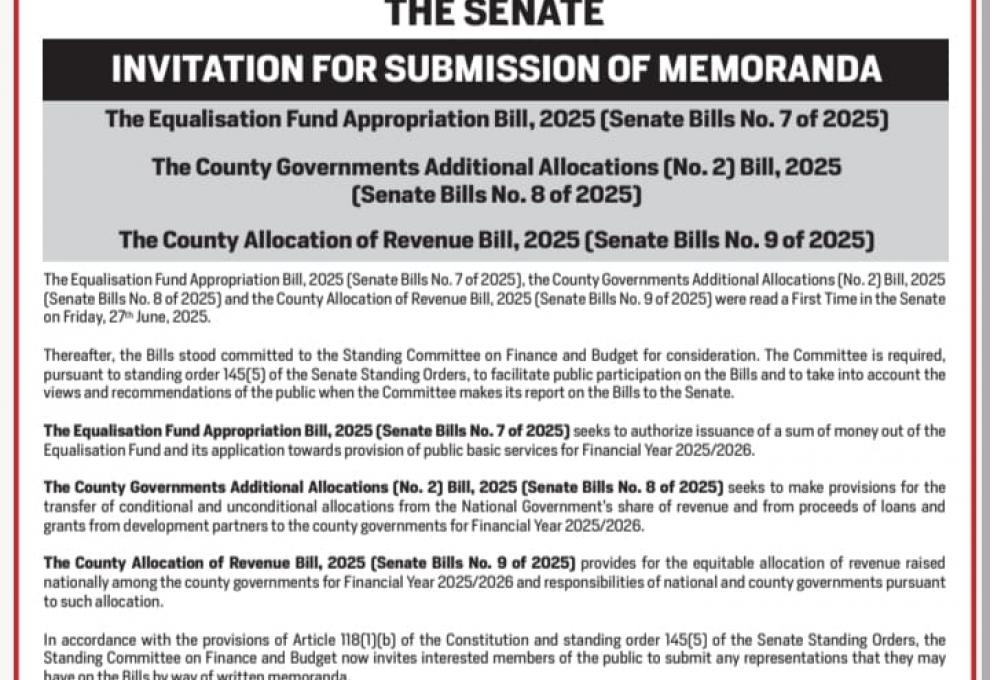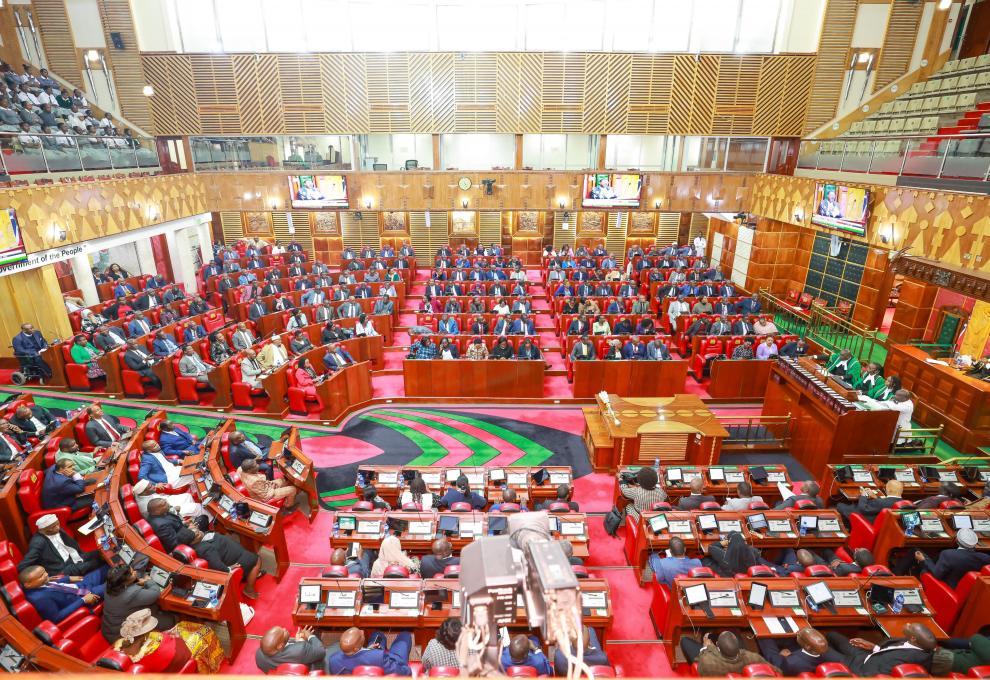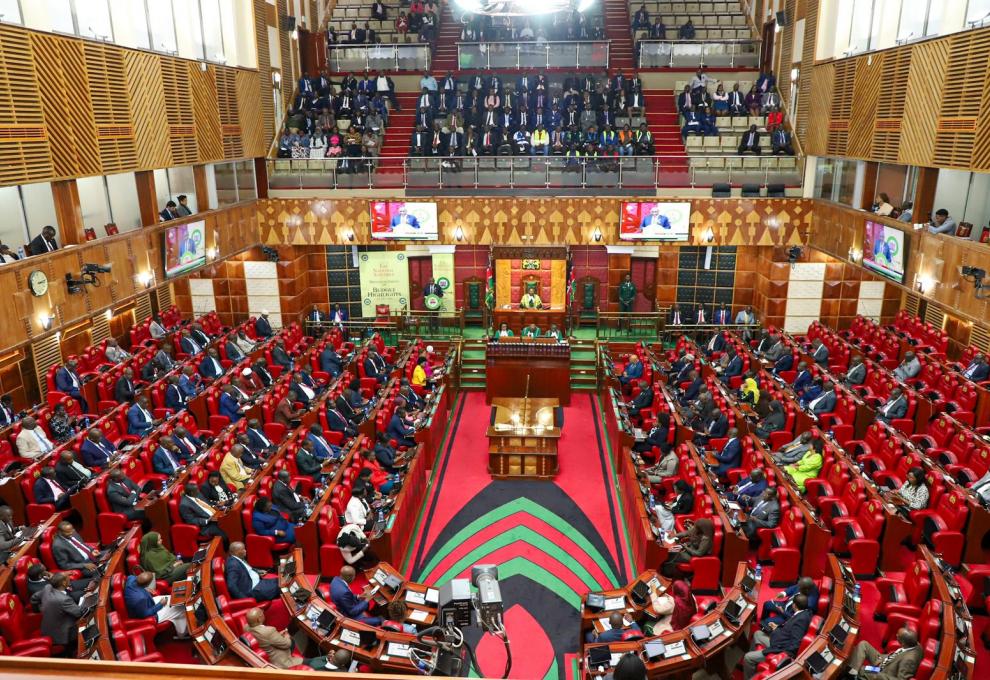𝐃𝐄𝐏𝐔𝐓𝐘 𝐏𝐑𝐄𝐒𝐈𝐃𝐄𝐍𝐓 𝐎𝐁𝐉𝐄𝐂𝐓𝐒 𝐓𝐎 𝐒𝐔𝐌𝐌𝐎𝐍 𝐎𝐅 𝐄𝐀𝐂𝐂 𝐎𝐅𝐅𝐈𝐂𝐈𝐀𝐋𝐒
Deputy President Rigathi Gachagua has objected to a request by the National Assembly to have senior officials in the Ethics and Anti-Corruption Commission (EACC) saying the request will irredeemably prejudice the trial against him.
The Deputy President said the request was against the provisions of Article 25 of the constitution on fair trial and wondered why neither the EACC nor the Directorate of Criminal Investigations had been invited to investigate some of the criminal allegations levelled against him in the trial.
“Why were these allegations, suspicions or conclusions on matters touching on money laundering against the Deputy President never referred to EACC or DCI?”, observed Senior Counsel Paul Muite, who is leading Mr Gachagua’s legal team in the trial.
Mr Muite made the comments after Speaker Amason Kingi accepted the request by the National Assembly to have the EACC chief Executive Officer Twalib Mbarak summoned to appear before the trial to shed light on some of the allegations leveled against the DP.
In seeking the summon of the EACC official, the National Assembly had invoked Rule 10 of the Senate Rules of Procedure governing the trial of removal from office through impeachment of state officers.
Rule 10 allows the person on trial to demand the summon of any person to appear before the House to adduce evidence.
While accepting the request, Speaker Kingi told the lawyers representing the Deputy President that they will have the opportunity not just to re-examine such witnesses, but also raise objections whenever such witnesses will go outside the issues being litigated before the House.
But Mr Muite rejected: “We draw your attention to Article 50 of the constitution, which is the fulcrum of fair trial,” he argued. “The rules of this House must be respected, so should the constitution.
“We ask you to reconsider the exercise of that right so that the Deputy President may have a fair trial.”
Speaker Kingi upheld his decision.



